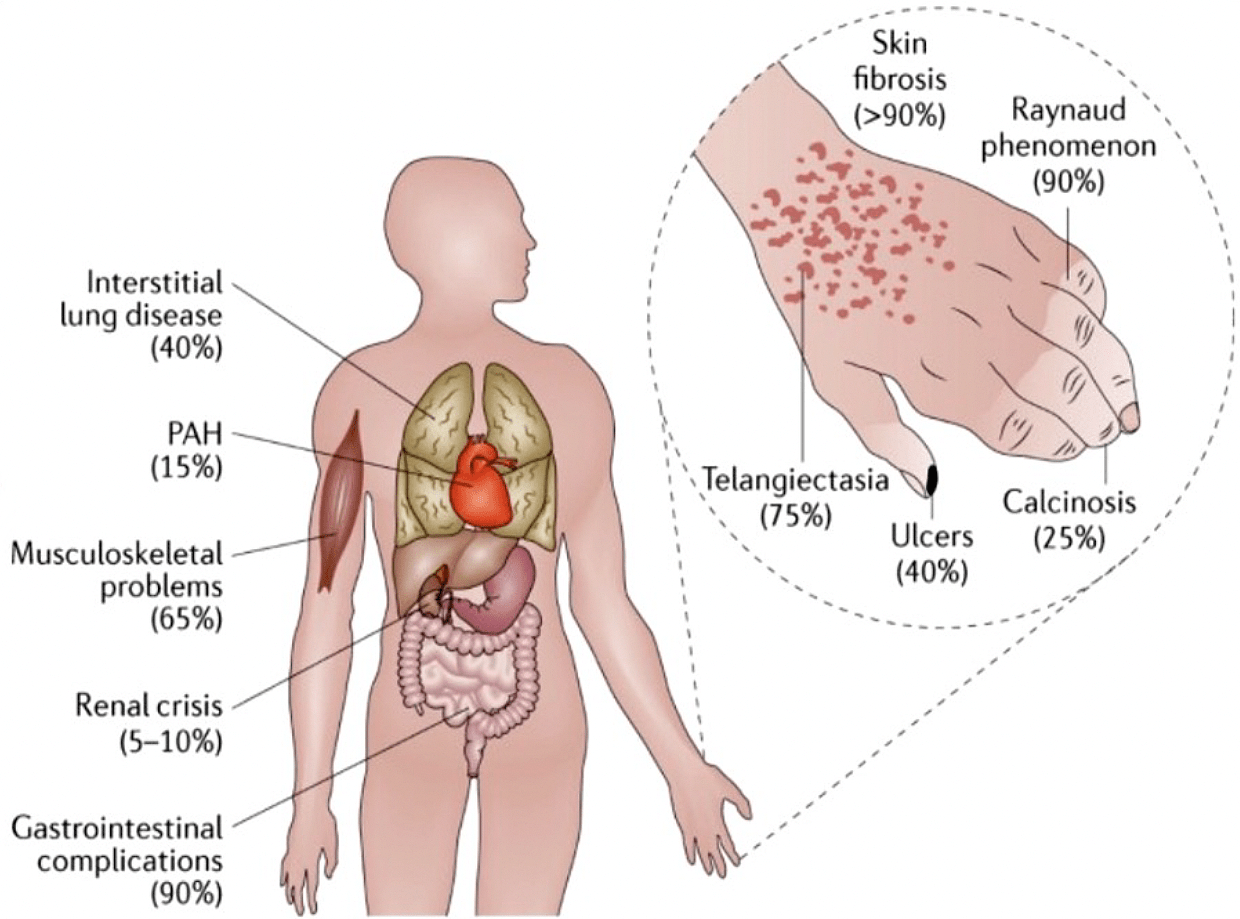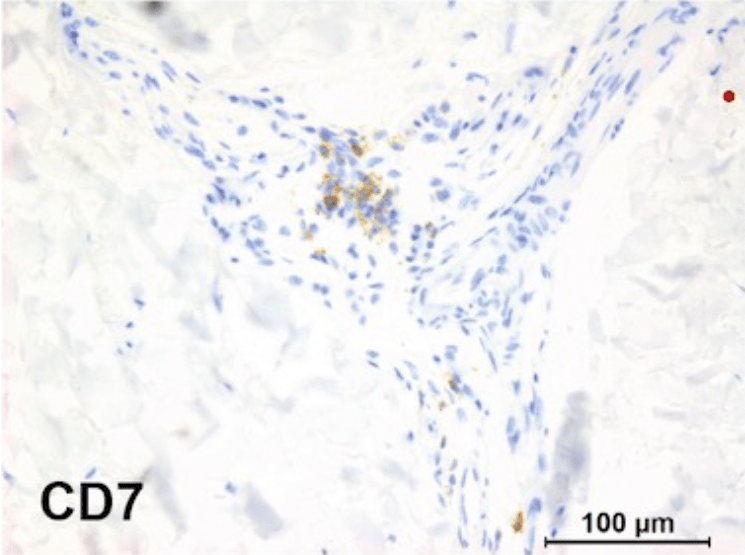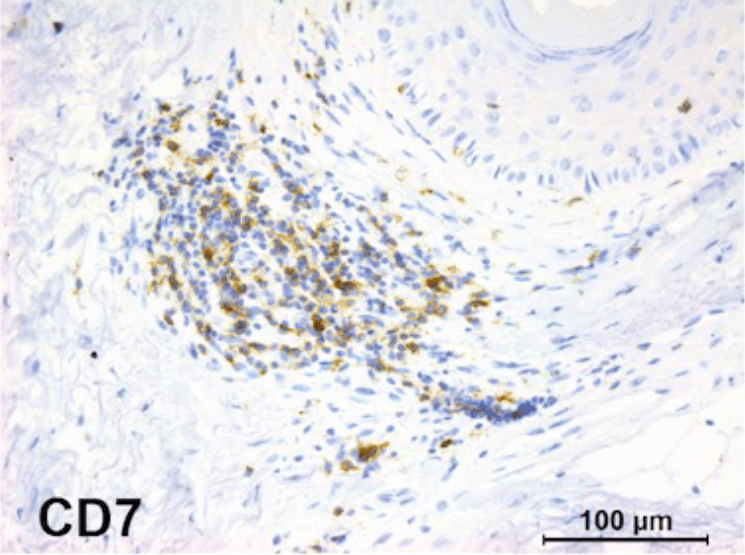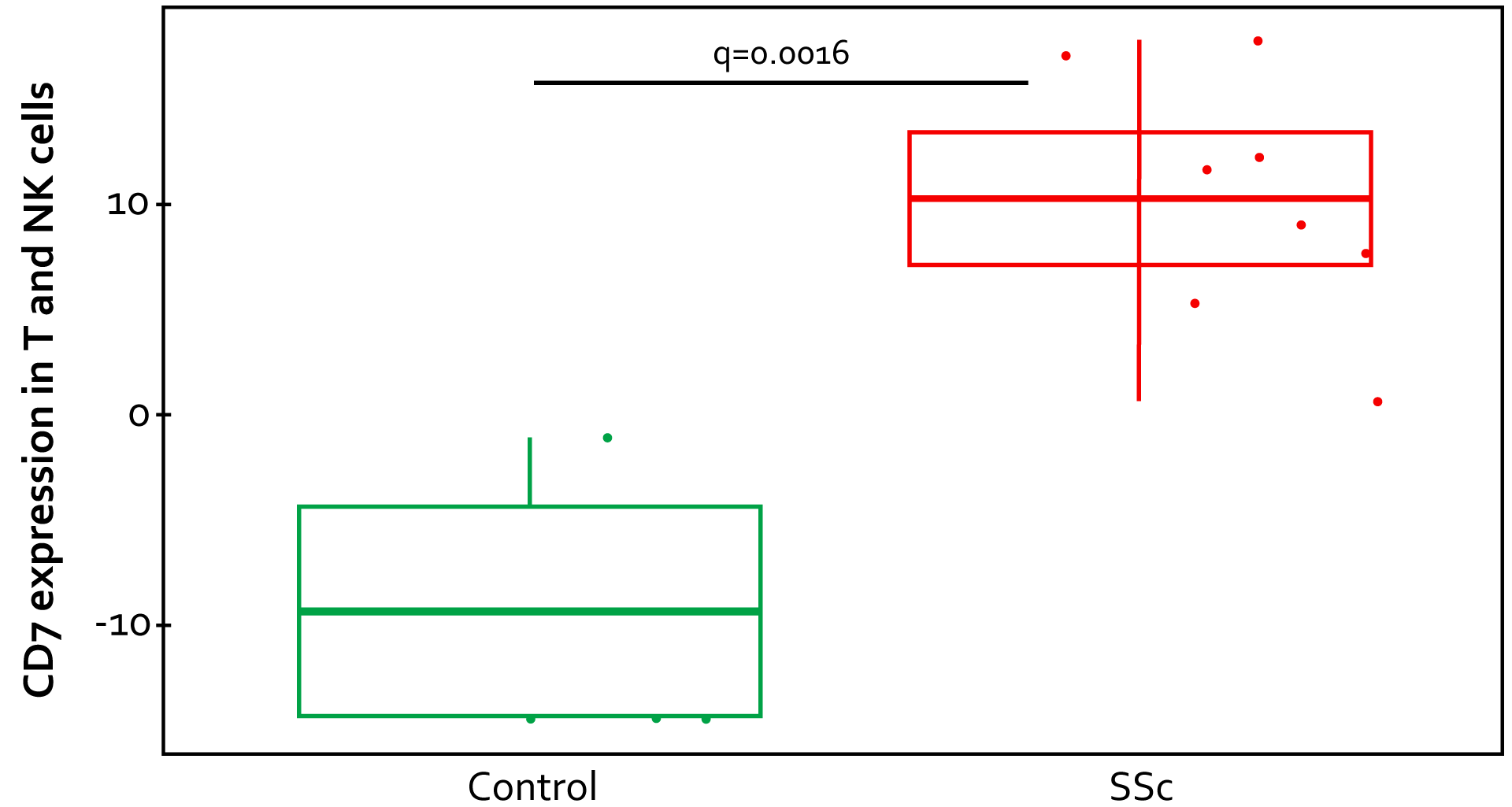Systemic Sclerosis (SSc)
Systemic Sclerosis (SSc) is a rare debilitating and life-threatening autoimmune disease characterized by inflammation and fibrosis. It involves multiple organ systems, including skin, lungs, heart, GI tract, and kidneys.
There are two types: limited cutaneous SSc (lc-SSc) and diffuse cutaneous SSc (dc-SSc; estimated 5-year survival of only 40-50%).
Major causes of death due to dc-SSc are interstitial lung disease and (ILD) and pulmonary hypertension (PH). SSc affects around 1.47 million patients globally, and 200.000 patients in the US and EU, of which later group 67.000 are affected by dc-SSc.
There are no disease-modifying agents available that significantly improve disease outcome.
Hematopoietic stem cell transplantation (HSCT) can be used in dc-SSc, but is expensive and associated with significant toxicity.

Role of CD7-positive T cells and NK cells in SSc

Non-lesional SSc skin

Lesional SSc skin
T cells and NK cells are key players in the disease process of SSc, promoting fibrosis, vasculopathy and auto-antibody production. SSc skin and lungs shows an increased infiltration of effector T cells and NK cells, which can already be seen very early in the disease process.
SSc patients show an oligoclonal expansion of T cells in both peripheral blood and skin, including CD4-positive cytotoxic lymphocytes (CD4+CTLs) that are associated with fibrosis and vasculopathy.
The abundance and function of NK cells is altered in SSc patients and NK cells in dc-SSc patients produce higher levels of IFN-γ and CXCL10, which are associated with the inflammatory and fibrotic processes.
Furthermore NK cells modulate the activity of dendritic cells (DCs) and T helper 17 (Th17) cells that are involved in the SSc pathogenesis.
Importantly, the T cells and NK cells in the lesional SSc skin and lungs show a clear upregulation of cell surface costimulatory molecule CD7, one of T-Guard’s target-antigens.
CD7 upregulation in SSc-affected lung tissues
